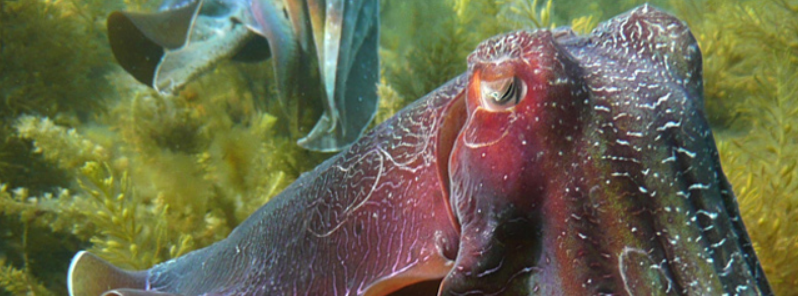Significant rise of the cephalopods in the world’s oceans observed over the last 60 years

A new international research, led by the scientists from the University of Adelaide, South Australia, suggests that contrary to the fish species, the number of cephalopods (octopus, cuttlefish, and squid) in the world's oceans, have increased over the last 60 years. This widespread increase may be driven by the large-scale changes in the ocean environment.
To study the long-term trends in the abundance of the cephalopod species, the researchers compiled a global database showing the cephalopod catch rates.
“Our analyses showed that cephalopod abundance has increased since the 1950s, a result that was remarkably consistent across three distinct groups,” says lead author Dr. Zoë Doubleday, Research Fellow in the Environment Institute and School of Biological Sciences.
“Cephalopods are often called ‘weeds of the sea’ as they have a unique set of biological traits, including rapid growth, short lifespans, and flexible development. These allow them to adapt to changing environmental conditions (such as temperature) more quickly than many other marine species, which suggests that they may be benefiting from a changing ocean environment.”
According to Dr. Doubleday, the study originated from investigating the decreasing numbers of the Giant Australian cuttlefish: “There has been a lot of concern over declining numbers of the iconic Giant Australian cuttlefish at the world-renowned breeding ground in South Australia’s Spencer Gulf. To determine if similar patterns were occurring elsewhere, we compiled this global-scale database. Surprisingly, analyses revealed that cephalopods, as a whole, are in fact increasing; and since this study, cuttlefish numbers from this iconic population near Whyalla are luckily bouncing back.”
Experts think the global changes occurring in the world's oceans and affecting the increase of the cephalopod species, have been induced by human activities.
“Cephalopods are an ecologically and commercially important group of invertebrates that are highly sensitive to changes in the environment. We’re currently investigating what may be causing them to proliferate – global warming and overfishing of fish species are two theories. It is a difficult, but important question to answer, as it may tell us an even bigger story about how human activities are changing the ocean,” said Professor Bronwyn Gillanders.
According to Dr. Doubleday, because the cephalopods are present in all marine habitats and are a significant food source for numerous species, the observed increase in their abundance has significant and complex implications for both the marine food web and for humans.
Reference:
- "Global proliferation of cephalopods" – Zoë A. Doubledaycorrespondenceemail, Thomas A.A. Prowse10, Alexander Arkhipkin, Graham J. Pierce, Jayson Semmens, Michael Steer, Stephen C. Leporati, Sílvia Lourenço, Antoni Quetglas, Warwick Sauer, Bronwyn M. Gillanders – Current Biology (2016) – DOI: http://dx.doi.org/10.1016/j.cub.2016.04.002
Featured image: Giant Australian cuttlefish (Sepia apama), Spencer Gulf, South Australia. Image credit: David Wiltshire

Commenting rules and guidelines
We value the thoughts and opinions of our readers and welcome healthy discussions on our website. In order to maintain a respectful and positive community, we ask that all commenters follow these rules.